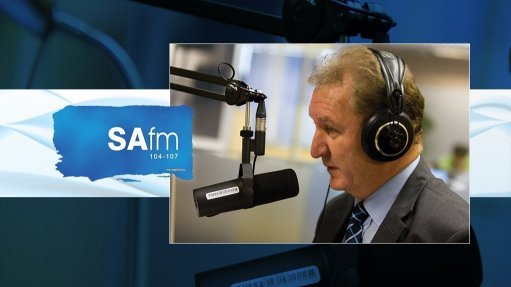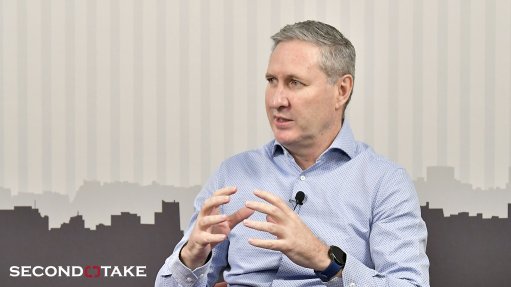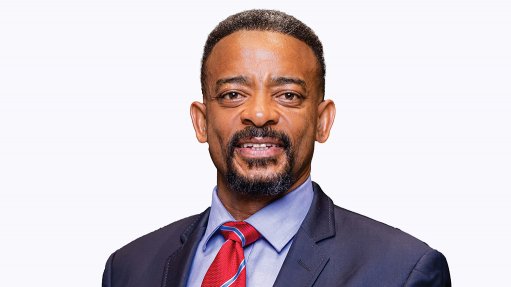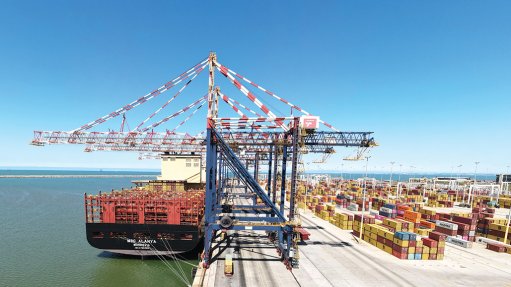EnerGEO, AEC urge review of South Africans’ views on seismic surveys
Energy geoscience industry representative EnerGEO Alliance and African energy sector advocate the African Energy Chamber (AEC) have called on the scientific community to reconsider what they posit are “fundamentally flawed and misinformed” data and research that indicates that scientific surveys have significantly negative impacts on marine life and ecosystems.
The two energy players point out that, at the start of the year, the Scientific Advisory Group on Energies (SAGE) called on the South African government to strengthen and improve legislation that serves to protect the marine environment found in the Wild Coast, offshore South Africa.
In its advisory, SAGE indicated that seismic surveys pose a significant threat to marine life in the region, raising concerns about the potential environmental harm and impact to local, small-scale fishing communities.
EnerGEO and the AEC state, however, that that review is based on “distortions and misinformation”.
They say, “there is no scientific evidence to suggest that seismic surveying, which has been an ongoing and essential developmental process for over a century, has any sort of biologically significant negative impact on marine life or their ecosystems”.
“There is no scientific basis that the planned seismic surveying will have any sort of impact on marine ecosystems. The data presented by SAGE is not only misinformed, but inaccurate, with the decision to halt activity not only causing project disruption, but directly hindering any progress to make energy poverty history.
“We need to put our people first, and with no harm anticipated to be done to marine life from the surveys, there is no reason we cannot continue to explore,” posits AEC executive chairperson NJ Ayuk.
The two entities claim in their response that there are scientific studies supporting the notion that seismic activity will not irreparably harm or disturb the environment on a regional scale.
They do, however, concede that the SAGE publication is correct in its statement that relatively few studies have been conducted in South Africa.
However, they say extensive seismic surveying has been ongoing within the US Gulf of Mexico for over 50 years, where, they note, fisheries and local marine life and ecosystems still thrive.
The Makhanda High Court of South Africa recently granted an interim interdict for oil and gas company Shell’s seismic survey off the Wild Coast of South Africa’s eastern coastline.
EnerGEO and the AEC say they are calling on SAGE to engage in a direct dialogue to express concerns regarding what they believe are inaccuracies contained within its advisory; and to provide SAGE with additional information and scientific support.
RESPONSE
Responding to EnerGeo and the AEC in a separate statement on February 1, SAGE acknowledged the call to engage on the matter, stating: “Lively debate is part and parcel of academic discourse, drives scientific progress and is the basis of defining a research agenda.”
It emphasises that the SAGE advisory in question is science-based, notes that it takes into account existing knowledge gaps and that it highlights the South African government’s local and international legal obligations.
“Given that seismic surveys are considered crucial to understanding where recoverable oil and gas resources likely exist, and that based on the results thereof, exploration companies will largely decide whether or where to drill for hydrocarbon deposits, SAGE recognises that the hydrocarbon sector – of which EnerGeo and AEC are constituents – views the cessation of seismic surveys in South African waters as an existential threat to downstream hydrocarbon extraction in South Africa’s Exclusive Economic Zone.
“SAGE thus recognises the vested interests implicit in EnerGeo and AEC’s critique of the advisory,” SAGE states.
It also notes the EnerGeo and AEC’s critique of four peer-reviewed articles and one scientific report that the Advisory cited.
In this regard, SAGE reiterates that there is enough scientific literature that supports the position that seismic surveys can be harmful to marine environments.
SAGE says it looks forward to courts providing legal clarity on whether transitional provisions in South Africa’s National Environmental Management Act of 1998 (as amended) obviate the need to obtain environmental authorisation for offshore seismic surveys.
“Regardless of judicial pronouncements on this issue, SAGE recognises that mere regulatory compliance does not necessarily assure marine ecosystem integrity, especially if our knowledge of such ecosystems is limited,” it states.
Therefore, the position of SAGE remains unchanged it says, explaining that, given the relative dearth of knowledge of marine life in South African waters, the potential impact of seismic surveys on marine life remains poorly understood.
“As such, until we better understand our marine ecosystems, in line with international law, the precautionary principle ought to apply to proposed seismic surveys in South African waters,” SAGE states.
Moreover, it reiterates that domestic legislation needs to be updated to reflect South Africa’s international obligations. Also, it indicates that environmental experts need to be part of the evaluation of any applications for hydrocarbon exploration and/or exploitation in South African waters.
SAGE has also called on the industry and the scientific community to purposefully and proactively collect more data on the country’s biodiversity and biotic responses to seismic disturbances, so there can be a better understanding and characterisation of potential impacts consequent upon seismic surveys, going forward.
Comments
Press Office
Announcements
What's On
Subscribe to improve your user experience...
Option 1 (equivalent of R125 a month):
Receive a weekly copy of Creamer Media's Engineering News & Mining Weekly magazine
(print copy for those in South Africa and e-magazine for those outside of South Africa)
Receive daily email newsletters
Access to full search results
Access archive of magazine back copies
Access to Projects in Progress
Access to ONE Research Report of your choice in PDF format
Option 2 (equivalent of R375 a month):
All benefits from Option 1
PLUS
Access to Creamer Media's Research Channel Africa for ALL Research Reports, in PDF format, on various industrial and mining sectors
including Electricity; Water; Energy Transition; Hydrogen; Roads, Rail and Ports; Coal; Gold; Platinum; Battery Metals; etc.
Already a subscriber?
Forgotten your password?
Receive weekly copy of Creamer Media's Engineering News & Mining Weekly magazine (print copy for those in South Africa and e-magazine for those outside of South Africa)
➕
Recieve daily email newsletters
➕
Access to full search results
➕
Access archive of magazine back copies
➕
Access to Projects in Progress
➕
Access to ONE Research Report of your choice in PDF format
RESEARCH CHANNEL AFRICA
R4500 (equivalent of R375 a month)
SUBSCRIBEAll benefits from Option 1
➕
Access to Creamer Media's Research Channel Africa for ALL Research Reports on various industrial and mining sectors, in PDF format, including on:
Electricity
➕
Water
➕
Energy Transition
➕
Hydrogen
➕
Roads, Rail and Ports
➕
Coal
➕
Gold
➕
Platinum
➕
Battery Metals
➕
etc.
Receive all benefits from Option 1 or Option 2 delivered to numerous people at your company
➕
Multiple User names and Passwords for simultaneous log-ins
➕
Intranet integration access to all in your organisation


















